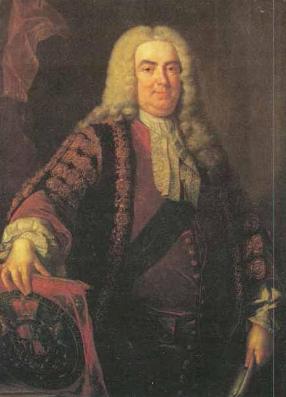POJ 3126 Prime Path BFS
Posted cautx
tags:
篇首语:本文由小常识网(cha138.com)小编为大家整理,主要介绍了POJ 3126 Prime Path BFS相关的知识,希望对你有一定的参考价值。
题目:
Prime Path
| Time Limit: 1000MS | Memory Limit: 65536K | |
| Total Submissions: 35295 | Accepted: 18998 |
Description
 The ministers of the cabinet were quite upset by the message from the Chief of Security stating that they would all have to change the four-digit room numbers on their offices.
The ministers of the cabinet were quite upset by the message from the Chief of Security stating that they would all have to change the four-digit room numbers on their offices. — It is a matter of security to change such things every now and then, to keep the enemy in the dark.
— But look, I have chosen my number 1033 for good reasons. I am the Prime minister, you know!
— I know, so therefore your new number 8179 is also a prime. You will just have to paste four new digits over the four old ones on your office door.
— No, it’s not that simple. Suppose that I change the first digit to an 8, then the number will read 8033 which is not a prime!
— I see, being the prime minister you cannot stand having a non-prime number on your door even for a few seconds.
— Correct! So I must invent a scheme for going from 1033 to 8179 by a path of prime numbers where only one digit is changed from one prime to the next prime.
Now, the minister of finance, who had been eavesdropping, intervened.
— No unnecessary expenditure, please! I happen to know that the price of a digit is one pound.
— Hmm, in that case I need a computer program to minimize the cost. You don‘t know some very cheap software gurus, do you?
— In fact, I do. You see, there is this programming contest going on... Help the prime minister to find the cheapest prime path between any two given four-digit primes! The first digit must be nonzero, of course. Here is a solution in the case above.
1033The cost of this solution is 6 pounds. Note that the digit 1 which got pasted over in step 2 can not be reused in the last step – a new 1 must be purchased.
1733
3733
3739
3779
8779
8179
Input
One
line with a positive number: the number of test cases (at most 100).
Then for each test case, one line with two numbers separated by a blank.
Both numbers are four-digit primes (without leading zeros).
Output
One line for each case, either with a number stating the minimal cost or containing the word Impossible.
Sample Input
3 1033 8179 1373 8017 1033 1033
Sample Output
6 7 0
题意:
给出两个素数下x,y,问:每次只改变一个数的情况使得x变成y所需要的最少步数。
分析:
给出的数只有四个位且首位不为0,以x为起点,从0->9枚举每一位数算出从x向外搜索的素数,更新从x到该素数的最短步数,枚举完从当前点出发的所有素数后从队列中取出新起点,直到队列为空或者找到了目标素数。
AC code:

#include<cstdio> #include<cstring> using namespace std; struct node int k,step; h[100005]; int s[10005]; bool u[10005]; int su[10005]; int num; void olas() num=1; memset(u,true,sizeof(u)); u[1]=false; for(int i=2;i<=10000;i++) if(u[i]) su[num++]=i; for(int j=1;j<num;j++) if(i*su[j]>10000) break; u[i*su[j]]=false; if(i%su[j]==0) break; int change(int x,int i,int j) if(i==1) return (x/10)*10+j; else if(i==2) return (x/100)*100+j*10+x%10; else if(i==3) return (x/1000)*1000+j*100+x%100; else if(i==4) return j*1000+x%1000; int main() //freopen("input.txt","r",stdin); olas(); int t; scanf("%d",&t); while(t--) int ans=-1; int x,y; scanf("%d%d",&x,&y); h[1].k=x; h[1].step=0; int l=1,r=1; memset(s,100,sizeof(s)); while(1) if(h[l].k==y) ans=h[l].step; break; int ts,tk; for(int i=1;i<=4;i++) for(int j=0;j<=9;j++) if(!(j==0&&i==4)) int tk=change(h[l].k,i,j); if(!u[tk]) continue; ts=h[l].step+1; if(s[tk]<=ts) continue; if(tk==y) ans=ts; break; s[tk]=ts; r++; h[r].k=tk; h[r].step=ts; if(l==r||ans>=0) break; l++; if(ans>=0) printf("%d\n",ans); else printf("Impossible\n");
以上是关于POJ 3126 Prime Path BFS的主要内容,如果未能解决你的问题,请参考以下文章
